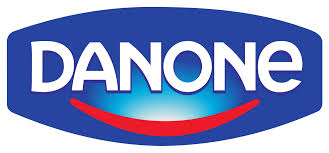23/04/2018
Flash boursier
Key data
| USD/CHF | EUR/CHF | SMI | EURO STOXX 50 | DAX 30 | CAC 40 | FTSE 100 | S&P 500 | NASDAQ | NIKKEI | MSCI Emerging MArkets | |
|---|---|---|---|---|---|---|---|---|---|---|---|
| Latest | 0.97 | 1.20 | 8'807.80 | 3'494.20 | 12'540.50 | 5'412.83 | 7'368.17 | 2'670.14 | 7'146.13 | 22'162.24 | 1'168.24 |
| Trend | |||||||||||
| %YTD | 0.03% | 2.38% | -6.12% | -0.28% | -2.92% | 1.89% | -4.16% | -0.13% | 3.52% | -2.65% | 0.85% |
Highlights :
1. EUR/CHF pierces the 1.20 mark
2. Thomas Jordan to take the podium on Friday
The next move on EUR/CHF
For the first time since January 2015, the EUR/CHF exchange rate pierced the 1.20 barrier, traditionally the zone that has been most staunchly defended in the FX market. The Swiss National Bank (SNB) had placed its minimum allowed rate here until January 2015, which had previously led it to buy vast swathes of the single currency. Reversion to the former cap at 1.20 comes as a relief for the SNB, even though the central bank would like to see the franc journey even lower in the longer term – which is why, voicing his initial reaction to the news, bank chief Thomas Jordan told Bloomberg that the SNB had no intention of changing its monetary policy, stating that the situation is still fragile. So the central bank is sticking to its expansionary guns by keeping interest rates in the red and reserving itself the right to wade into currency markets if required. In that respect, Thomas Jordan’s speech this Friday is eagerly awaited.
There are plenty of reasons why the Swiss franc may be easing now but the expert view is that, for a while, the currency has no longer been acting as a safe haven. Despite the tense political climate around the globe, little in the way of extra money has been flowing into Switzerland. Moreover, foreign capital is shifting from the franc to the euro amid policy normalisation by the European Central Bank.
Since last summer the euro has gained more than 10% against the Swiss franc. For Swiss companies, a stronger euro is generally good news, especially for small caps and mid caps, which generate a significant portion of their sales revenues in euro. A weaker franc relative to the euro means better competiveness relative to their Euroland peers. Blue chips have global exposure and as such are not sensitive exclusively to the EUR/CHF exchange rate.
From 1.20, the pundits are unsure which way the EUR/CHF cross will now head. Some suggest that further appreciation could trigger a wave of euphoria carrying the pair all the way to 1.25. Others see profit-taking in the offing, entailing a downturn towards 1.15 with the former floor rate becoming the new ceiling. Our view is that upside from 1.20 is limited.
ABB (ISIN: CH0012221716, price: CHF 23.68)

ABB’s first-quarter results were the best in three years. Adjusted for currencies and acquisitions, revenue edged up by 1% while order intake (on an adjusted basis) rose by 6%.
Net profit plunged by 21% but the decline was artificial insofar as first-quarter earnings in Q1 2017 were boosted by proceeds from the sale of the high-voltage cables business.
The highlight from this earnings report is doubtless the recovery at the power grids division, whose margin this time round flirted with the minimum 10% target set by management (9.7%). This division has been in the crosshairs of activist shareholder Cevian Capital, which wants to see it sold off. But here we see it perking up, which would seem to support management’s “stubbornness” in fighting to keep it within the group.
The publication cheered investors. ABB has a cast-iron balance sheet and we especially like its market positions, which are likely to gain from the development and integration of new energy sources as well as further manufacturing automation.
Buy with a target set at CHF 28.
Danone (ISIN: FR0000120644, price: EUR 66.38)

The group, the French dairy-products market leader, reported solid quarterly results with organic growth ticking along at its fastest rate since the final quarter of 2014. Sales in Q1 2017 totalled EUR 6.1 billion.
Danone saw better-than-expected organic growth at 4.9% whereas the broker consensus had projected an average of 3.9%. One factor for the growth spurt was the strong rise in demand for infant milk in China since the government shelved its one-child policy.
It had been a long time since Danone had not reported a concurrent improvement in all its divisions. The group also confirmed it was targeting double-digit growth in earnings per share for full-year 2018.
These figures will help move Danone towards its sales and operating margin growth targets for 2020, in spite of higher input costs and volatility in some currencies. Expect these results to bolster investor confidence. And the share remains attractively valued at 16x estimates 2019 earnings.
Target is EUR 75.
Download the Flash boursier (pdf)


 Flash boursier
Flash boursier